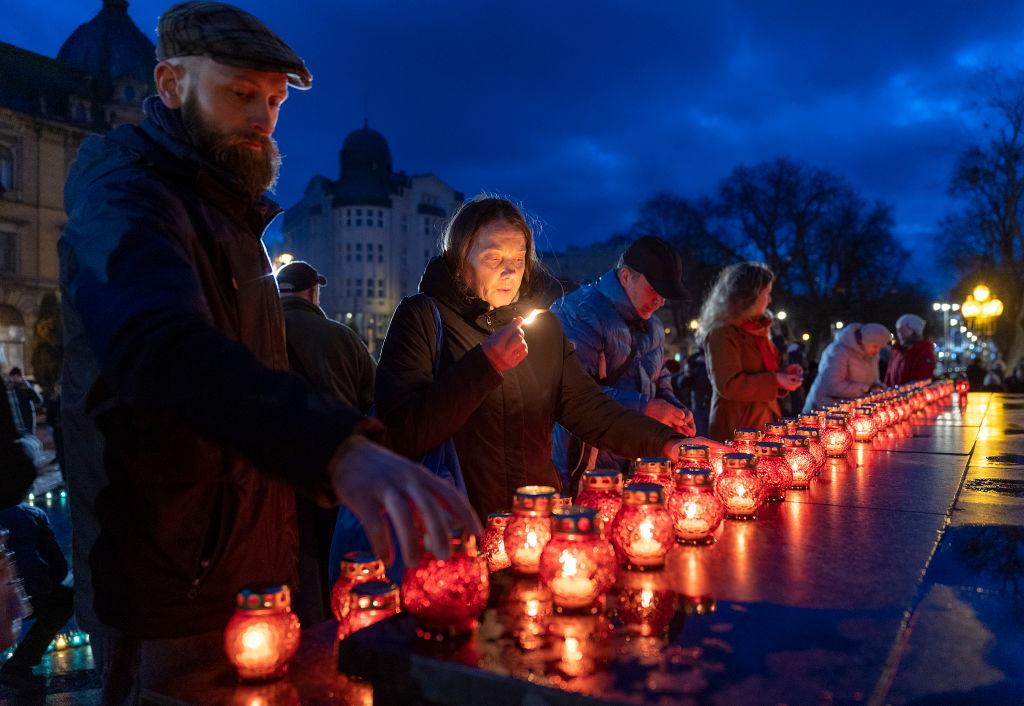
Wars seldom end in military victory so complete that losers simply accept the victors’ terms. The war in Ukraine is unlikely to end that way. Fighting will cease only if some agreement, formal or informal, is reached between the warring parties.
Most speculation about an agreement has focused on strategic, political and territorial issues. What territory, if any, would Ukraine renounce? Would this satisfy Russia? If a separate Ukraine survives, how independent would its government be? Assuming Ukraine could not join NATO or have NATO forces on its territory, what security guarantees would the West offer to ensure Russia doesn’t invade again? When and how would economic sanctions be lifted?
These obstacles to a settlement are daunting enough, but there are other intractable issues—war crimes, reparations and repatriation—that will compel Ukraine and its allies to contemplate difficult compromises.
Russia is committing appalling war crimes in Ukraine and there’s consequently much enthusiasm to pursue Russian criminality by legal means. With ample proof of killing of civilians, Russian forces can probably be shown to have attacked non-military targets deliberately or recklessly on a large scale. Counterclaims by Russia that the killing of civilians was staged or committed by Ukrainians themselves, or that Ukrainian forces were using schools, hospitals and so on for military purposes, simply do not stand up.
Wider allegations have also been mooted, including massive breaches of human rights, genocide and conducting a war of aggression. Yet there are enormous problems with all such charges. Determining or establishing an appropriate forum to hear charges is one, while getting the accused to court is another (though trials may take place in absentia).
A major problem is to determine those against whom charges should be levelled. Russian President Vladimir Putin himself is not immune, as the prosecution of another head of state, Slobodan Milosevic, before the International Criminal Tribunal for the former Yugoslavia demonstrates. Putin, however, though clearly responsible for setting in train the ‘special military operation’ and its foreseeable consequences, is likely to prove more elusive. The generals and members of the officer corps who directed operations are also open to charges, as are the low-ranking soldiers who actually fired the guns, shells and missiles. Wherever the line is drawn, many of the guilty will escape and this will be obvious to all.
A further dilemma is that the more vigorous the campaign to pursue war crimes charges, the more Russia’s willingness to negotiate will diminish. Russia vehemently denies that it has committed such crimes and will not readily accept that its leaders and its armed forces could face charges at the end of hostilities. However strongly Ukraine and its allies believe war crimes charges are justified, such a stance makes a settlement more problematic. The price of reaching peace may be granting immunity from prosecution for war crimes to a government and military that are as guilty as any in history.
The issue of reparations for the enormous damage Russia has inflicted on life and property in Ukraine has received little attention—so far. Ukraine could justifiably demand recompense for the losses it has suffered. As the innocent victim of aggression it will have the sympathy of many, but it’s hard to imagine that an impoverished Russia would be willing or even able to pay up. On the contrary, it is likely to continue to blame NATO and Ukraine for the war.
At most, Russian assets confiscated by Western and other countries could be diverted to Ukraine or reparations in kind such as gas or oil could be demanded. Private prosecutions might also be launched, though they’d have little chance of success. In the end, however, it is wealthy Western nations that will likely be called upon to foot the bill.
Repatriation issues could also prove thorny. Russia is reported to have moved some 400,000 Ukrainian civilians, including 80,000 children, into its territory. It’s possible Russia will claim they do not wish to return or will use them as bargaining chips in any settlement. The same could apply to Ukrainian citizens living in Russian-occupied territory.
A few small-scale exchanges of prisoners of war have apparently taken place. But problems could arise if captured Russian soldiers don’t wish to be returned to Russia. Would Ukraine be willing to return unwilling Russians if this was a key Russian demand in a settlement? At the same time, Russia may assert that captured Ukrainian soldiers, particularly Russian speakers, do not want to return home. Again, hard choices would have to be made.
War is easily begun, but its settlement creates legal and ethical dilemmas that have to be resolved, compromised or ignored once the shooting stops. Ukraine and its supporters will face distasteful and costly choices. Or the war may drag on indefinitely.